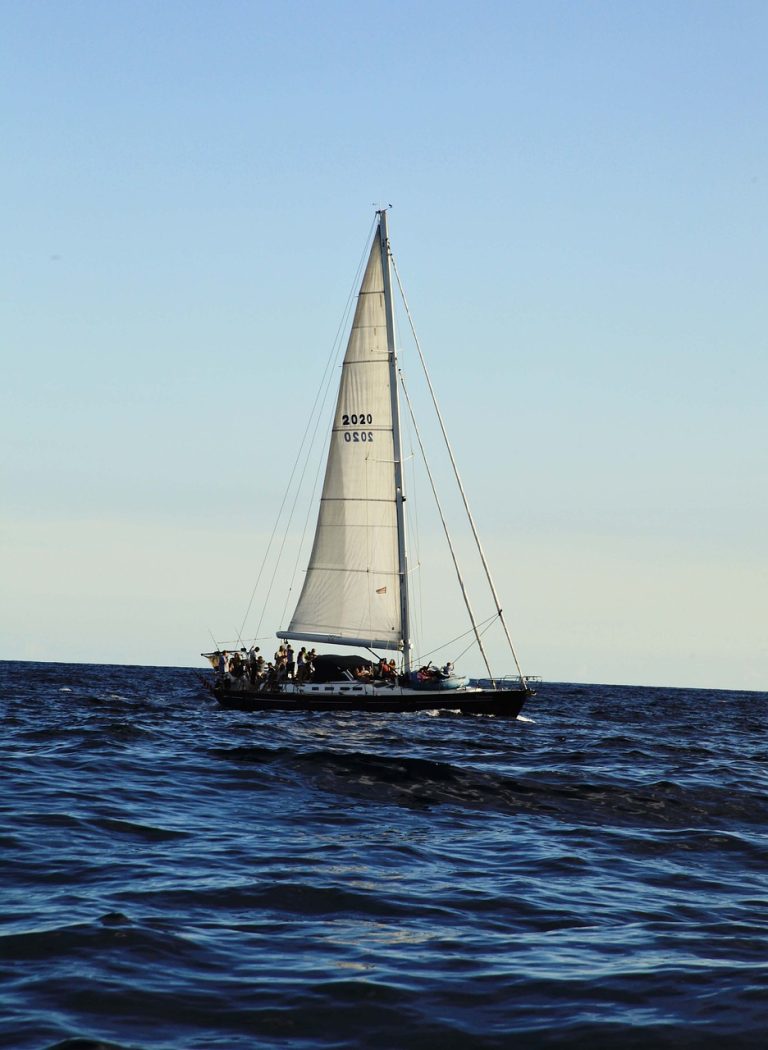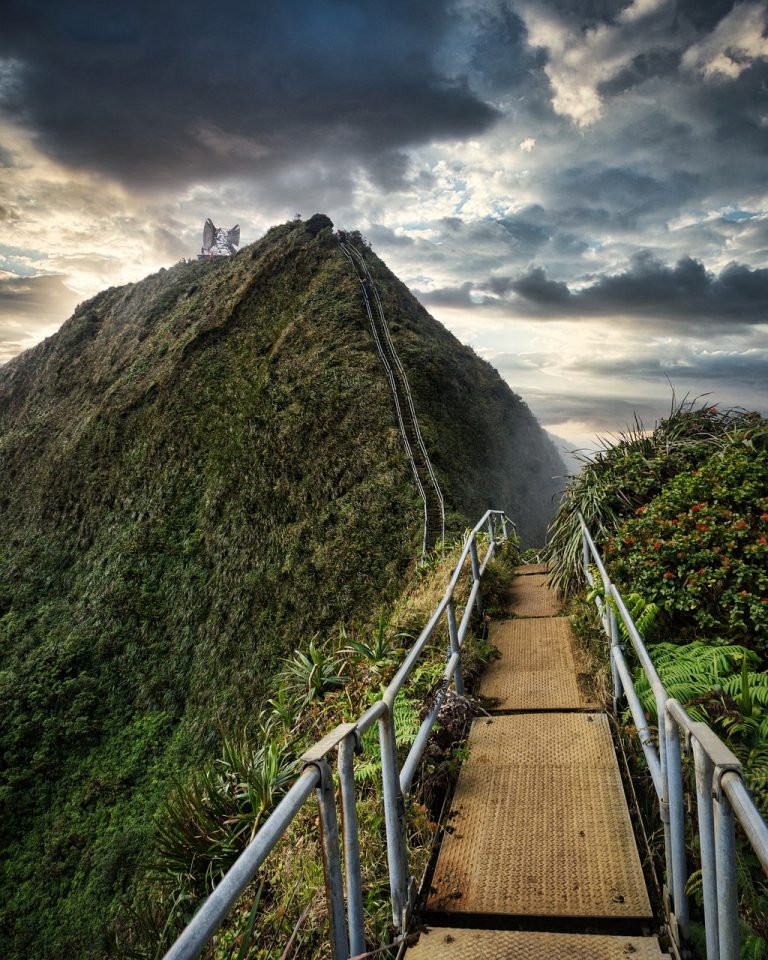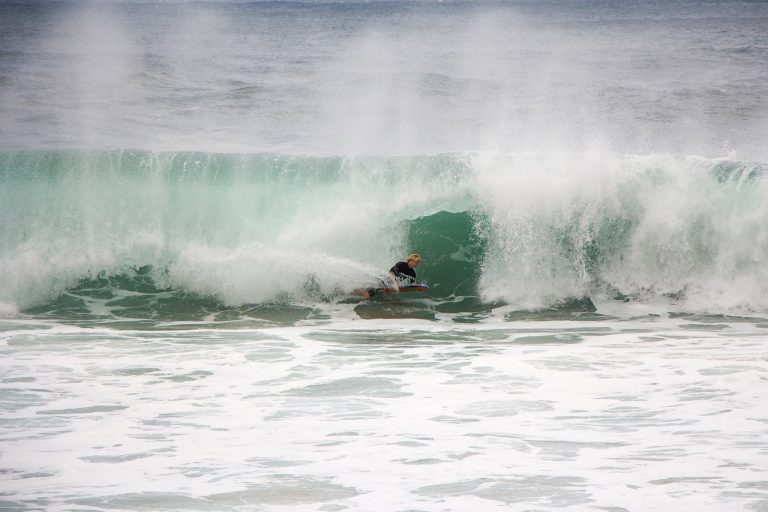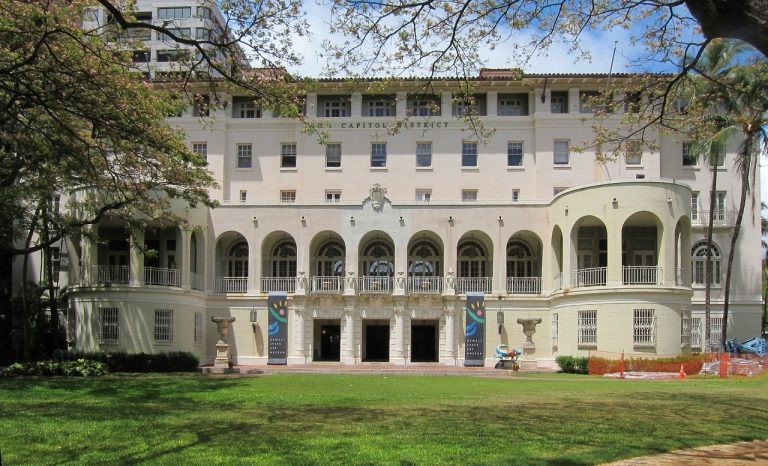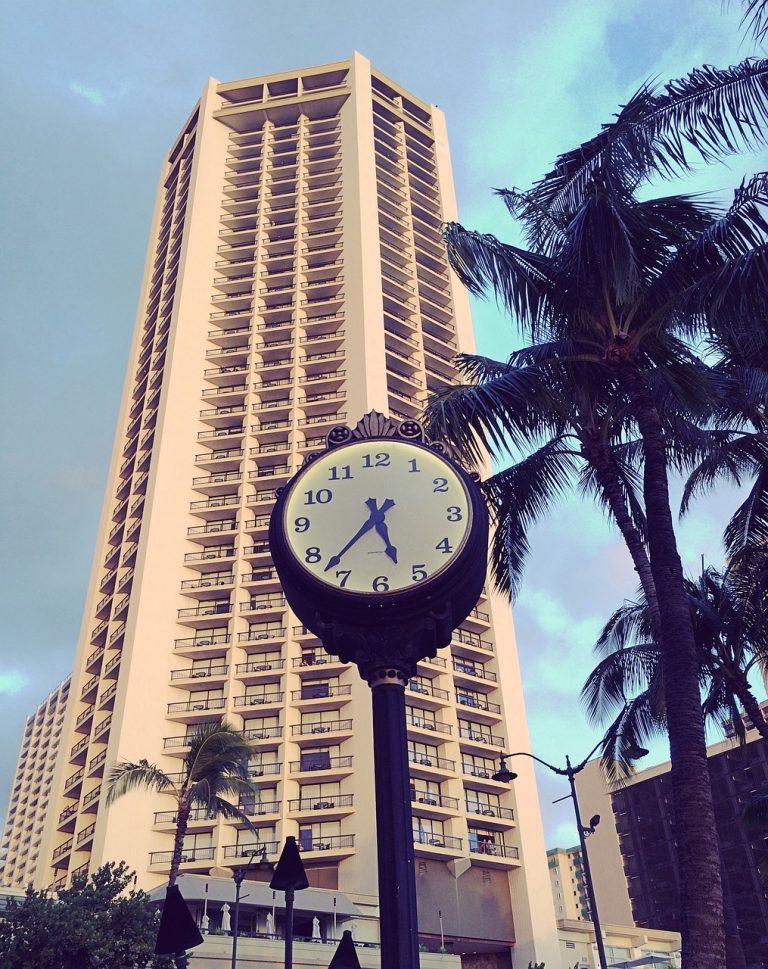Listen (English voice)
Honolulu Hawaii Video
Social and Cultural Impact of Honolulu Hawaii
Honolulu, the capital city of Hawaii, is not only a popular tourist destination but also a place with a rich social and cultural heritage. This article explores the various aspects of Honolulu’s social and cultural impact, highlighting its unique characteristics and contributions to the Hawaiian Islands.
Honolulu’s History and Heritage
- Hawaiian Monarchy: The history of Honolulu is deeply rooted in the Hawaiian monarchy, with the city serving as the royal capital. The Iolani Palace, the only royal palace in the United States, stands as a testament to this rich heritage.
- Polynesian Influence: Honolulu’s culture is heavily influenced by Polynesian traditions and customs. The practice of hula, the traditional Hawaiian dance, is an integral part of the city’s cultural fabric.
- Historic Landmarks: The city is home to numerous historic landmarks, including the Pearl Harbor National Memorial, which commemorates the events of December 7, 1941, and the USS Arizona Memorial.
- Local Art and Crafts: Honolulu is known for its vibrant art scene, with local artists showcasing their work in galleries and street markets. Traditional crafts such as lei-making and woodcarving are also celebrated.
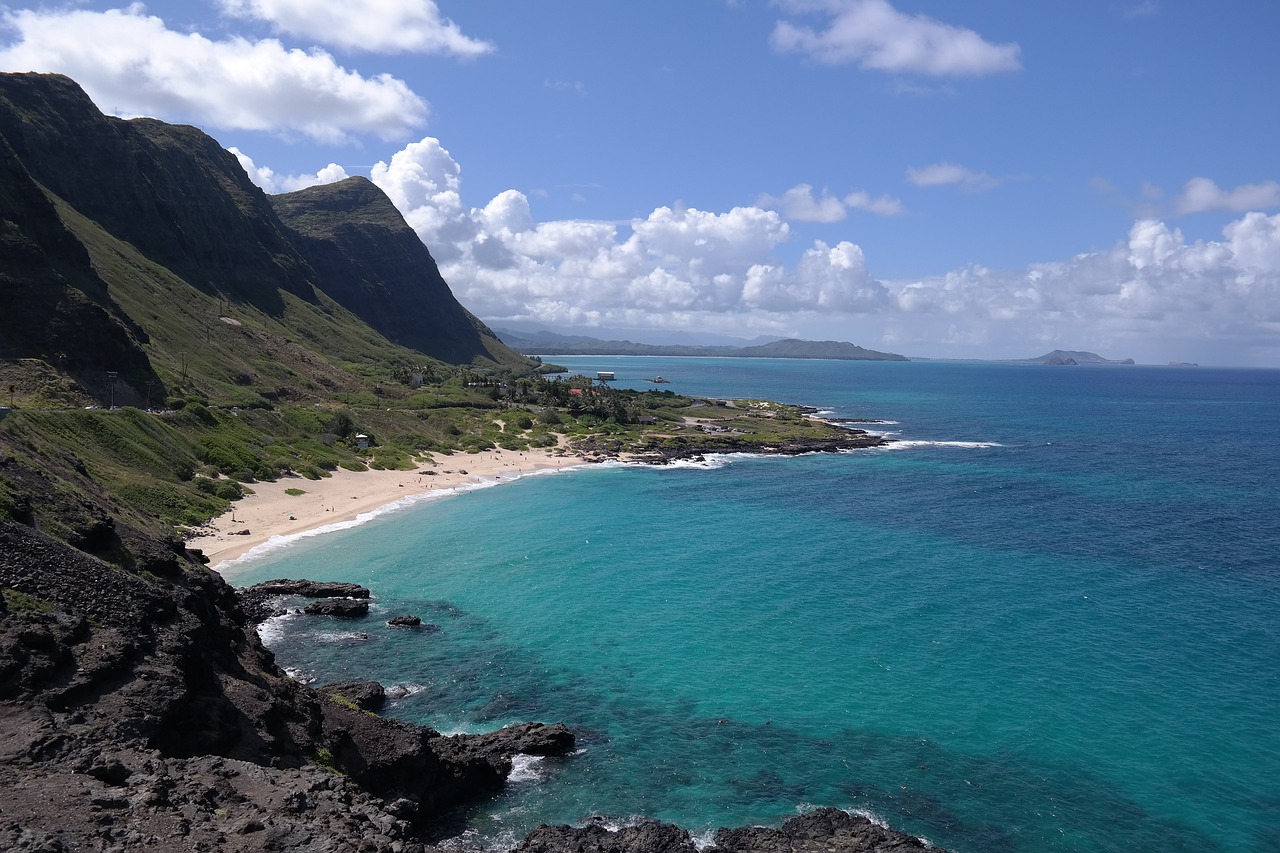
Honolulu’s Multiculturalism
- Asian Influence: Honolulu has a significant Asian population, particularly of Japanese, Chinese, and Filipino descent. This cultural diversity is reflected in the city’s cuisine, festivals, and traditions.
- Immigrant Communities: Over the years, Honolulu has attracted immigrants from various parts of the world, contributing to its multicultural fabric. Communities such as the Portuguese, Korean, and Micronesian communities have left their mark on the city.
- Festivals and Celebrations: Honolulu hosts a range of multicultural festivals throughout the year, including the annual Honolulu Festival, showcasing the diverse cultures and traditions found within the city.
- Cultural Exchange: Honolulu serves as a hub for cultural exchange, with institutions like the East-West Center promoting dialogue and understanding between different cultures and nations.
Honolulu’s Natural Beauty
- Beaches and Coastline: Honolulu is renowned for its stunning beaches, such as Waikiki Beach and Lanikai Beach. The pristine coastline offers opportunities for surfing, swimming, and relaxing in the sun.
- Volcanic Landscapes: The city is surrounded by volcanic landscapes, with Diamond Head being a prominent landmark. The volcanic activity has shaped the unique topography and adds to the natural beauty of the area.
- Lush Vegetation: Honolulu’s tropical climate supports a lush and diverse range of vegetation. Parks and gardens, such as Foster Botanical Garden and Kapiolani Park, provide tranquil spaces for residents and visitors alike.
- Marine Life: The waters around Honolulu are teeming with marine life, making it a popular destination for snorkeling and scuba diving. The Hanauma Bay Nature Preserve is a protected marine ecosystem, allowing visitors to experience the underwater world.
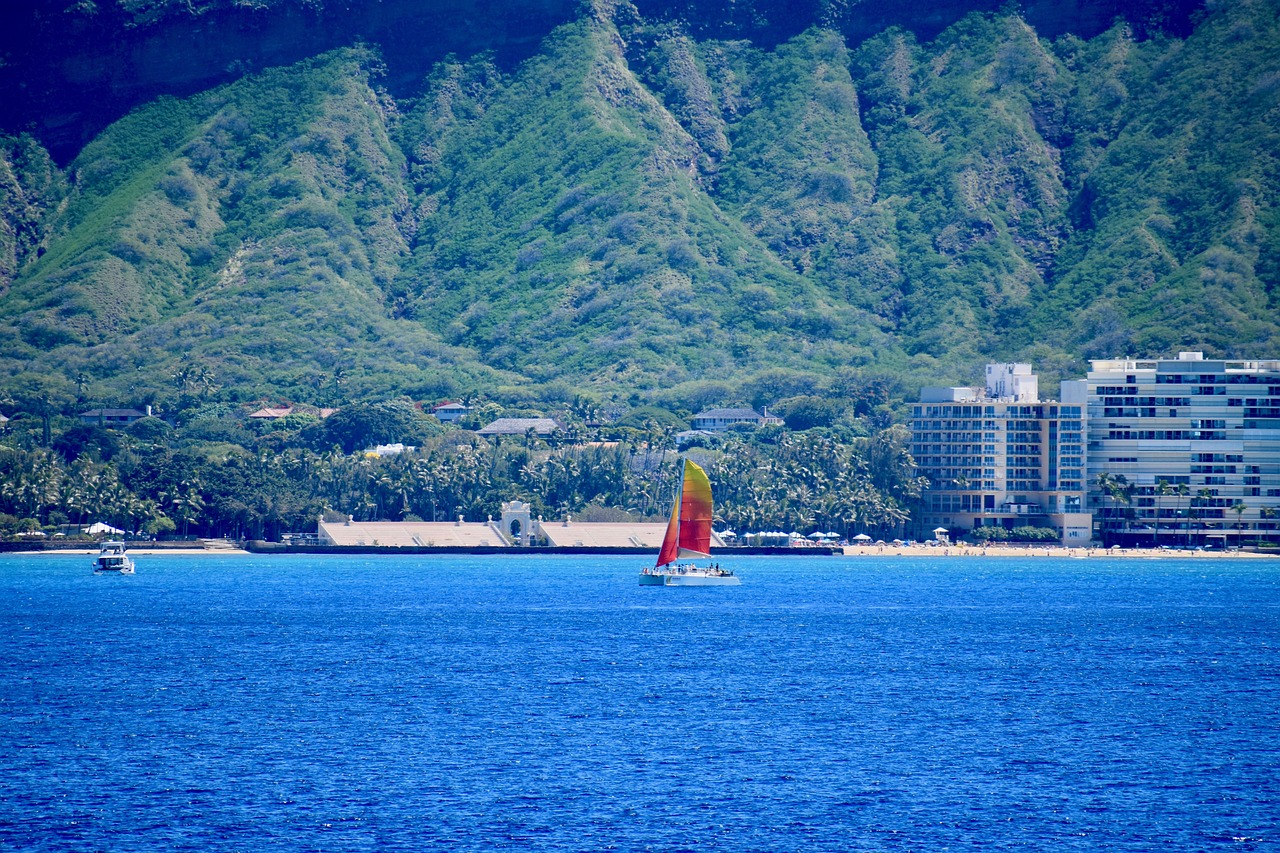
Honolulu’s Culinary Scene
- Hawaiian Cuisine: Honolulu offers a vibrant culinary scene, showcasing traditional Hawaiian dishes such as poi, kalua pig, and poke. Local ingredients like taro and coconut are used to create unique flavors.
- Asian Fusion: The city’s multiculturalism is reflected in its food, with Asian fusion cuisine being popular. Restaurants serve dishes that blend flavors from Japan, China, Korea, and other Asian countries.
- Farm-to-Table Movement: Honolulu embraces the farm-to-table movement, with a focus on using locally sourced ingredients. Farmers’ markets and farm tours allow residents and visitors to connect with the local food culture.
- Food Festivals: The city hosts various food festivals throughout the year, celebrating different cuisines and culinary traditions. The Hawaii Food and Wine Festival is a notable event that showcases the best of Hawaiian and international cuisine.
Honolulu’s Arts and Entertainment
- Performing Arts: Honolulu is home to a vibrant performing arts scene, with theaters and venues showcasing local and international talent. The Neal S. Blaisdell Center and the Hawaii Theatre are iconic venues in the city.
- Hawaii Opera Theatre: The Hawaii Opera Theatre is a prominent institution in Honolulu, hosting world-class opera performances and nurturing local talent.
- Honolulu Museum of Art: The Honolulu Museum of Art houses an extensive collection of Asian, European, and Hawaiian art. It provides a space for artistic exploration and appreciation.
- Hula Performances: Hula, the traditional Hawaiian dance, is not only a cultural practice but also a form of entertainment. Visitors can witness hula performances at various venues across the city.
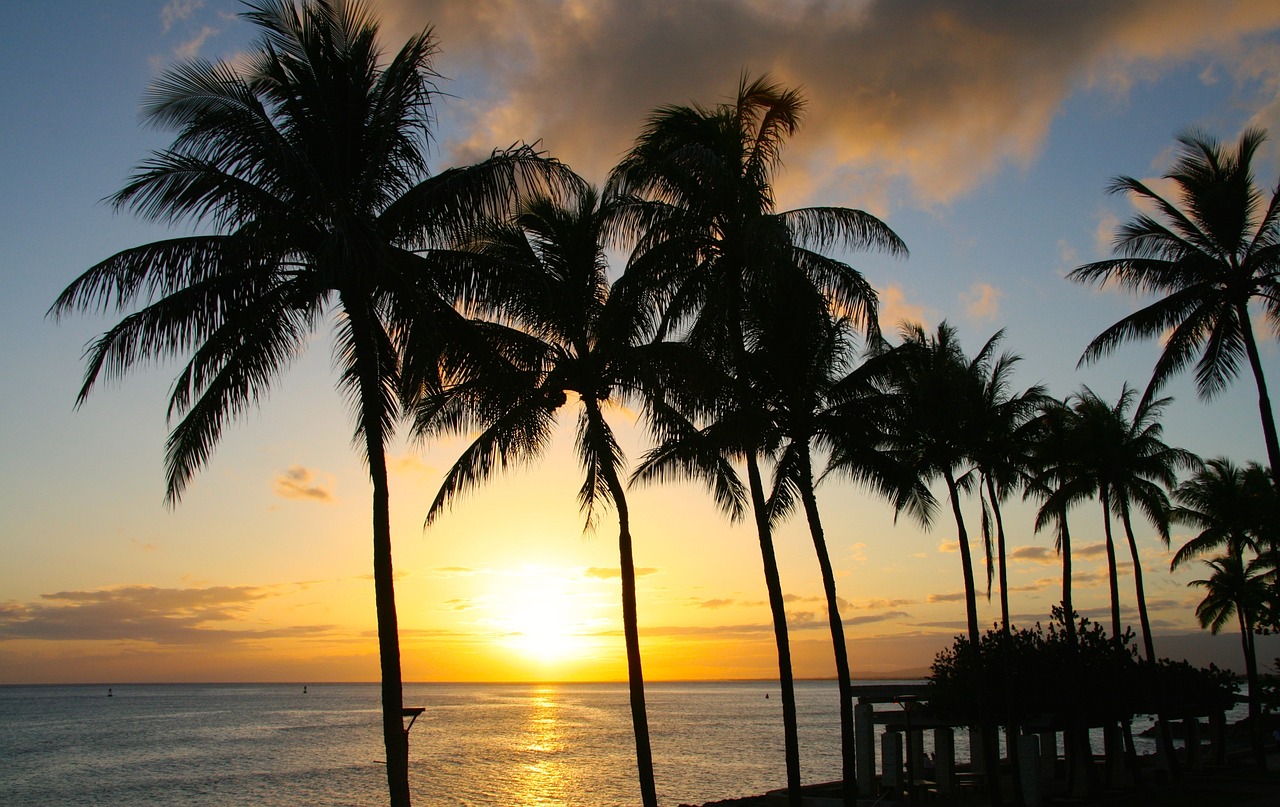
Honolulu’s Education and Research
- University of Hawaii: The University of Hawaii at Manoa, located in Honolulu, is a leading educational institution in the Pacific region. It offers a wide range of academic programs and contributes to research in various fields.
- Research Centers: Honolulu is home to several research centers and institutes, focusing on fields such as oceanography, astronomy, and indigenous studies. These institutions contribute to scientific advancements and promote cultural understanding.
- Educational Initiatives: Honolulu prioritizes education, with initiatives aimed at improving access to quality education for all residents. The Hawaii State Department of Education oversees the public school system in the city.
- Cultural Education: Honolulu provides opportunities for cultural education, with programs and workshops that allow residents and visitors to learn about Hawaiian traditions, language, and history.
Honolulu’s Sports and Recreation
- Water Sports: Honolulu’s coastal location makes it a haven for water sports enthusiasts. Surfing, paddleboarding, and kayaking are popular activities along the city’s beaches.
- Hiking and Outdoor Adventures: The surrounding mountains and trails provide ample opportunities for hiking and outdoor adventures. Popular hiking destinations include Diamond Head and Manoa Falls.
- Sporting Events: Honolulu hosts various sporting events, including the Honolulu Marathon and the Sony Open in Hawaii golf tournament. These events attract participants and spectators from around the world.
- Community Sports: Honolulu has a vibrant community sports culture, with residents actively participating in recreational leagues and events. Baseball, volleyball, and soccer are among the popular sports in the city.
Honolulu’s Transportation and Infrastructure
- Public Transportation: The city has a well-developed public transportation system, including buses and a metro rail line called TheBus and TheRail, respectively. These options provide convenient access to various parts of the city.
- Taxi and Rideshare Services: Honolulu offers taxi services and rideshare options such as Uber and Lyft, providing additional transportation choices for residents and visitors.
- Infrastructure Development: Honolulu has seen significant infrastructure development in recent years, including the expansion of highways and the construction of the Honolulu Rail Transit Project, aimed at improving transportation efficiency.
- Walkability and Bike-Friendly: The city is committed to creating walkable and bike-friendly neighborhoods, with dedicated pedestrian and cycling paths. This encourages active transportation and reduces reliance on cars.
Honolulu’s Tourism and Economy
- Tourism Industry: Honolulu’s economy heavily relies on tourism, with millions of visitors flocking to the city each year. The vibrant tourism industry supports various sectors, including hospitality, retail, and entertainment.
- Job Opportunities: The tourism industry provides employment opportunities for many residents of Honolulu, ranging from hotel staff to tour guides and restaurant workers.
- Local Businesses: The city embraces local businesses, with a thriving entrepreneurial culture. Locally-owned shops, restaurants, and boutiques contribute to the unique charm of the city.
- Arts and Crafts Markets: Honolulu’s arts and crafts markets, such as the Aloha Stadium Swap Meet, provide a platform for local artisans and entrepreneurs to showcase their products and contribute to the local economy.
Honolulu’s Environmental Initiatives
- Sustainable Practices: Honolulu is committed to sustainability, with initiatives aimed at reducing carbon emissions and promoting renewable energy sources. The city encourages recycling and supports eco-friendly practices.
- Protecting Natural Resources: Honolulu recognizes the importance of preserving its natural resources, including its beaches, forests, and marine ecosystems. Efforts are made to protect and conserve these valuable assets.
- Environmental Education: The city promotes environmental education and awareness, with programs that educate residents and visitors about the importance of conservation and sustainable living.
- Community Gardens: Honolulu supports community gardens, allowing residents to grow their own food and promote local agriculture. These gardens foster a sense of community and connection to the environment.
Conclusion
Honolulu, with its rich history, multiculturalism, natural beauty, and vibrant social and cultural scene, has a profound impact on the Hawaiian Islands. The city’s unique blend of traditions, cuisines, and experiences contribute to its allure as a global destination. Honolulu’s commitment to education, sustainability, and community further enhances its social and cultural fabric, making it a truly remarkable place.
References
- Hawaii Tourism Authority: www.hawaiitourismauthority.org
- Honolulu Museum of Art: www.honolulumuseum.org
- University of Hawaii at Manoa: www.hawaii.edu
- Honolulu Authority for Rapid Transportation: www.honolulutransit.org
- Hawaii State Department of Education: www.hawaiipublicschools.org


